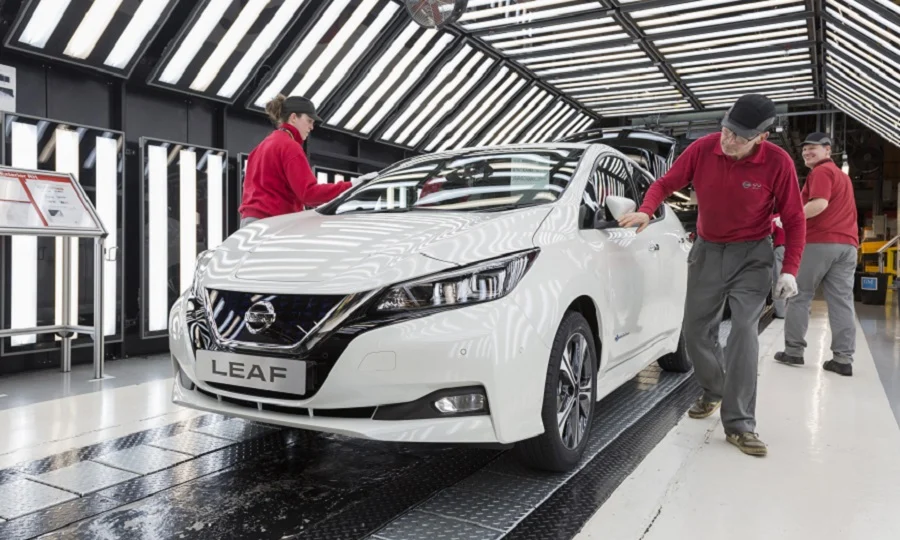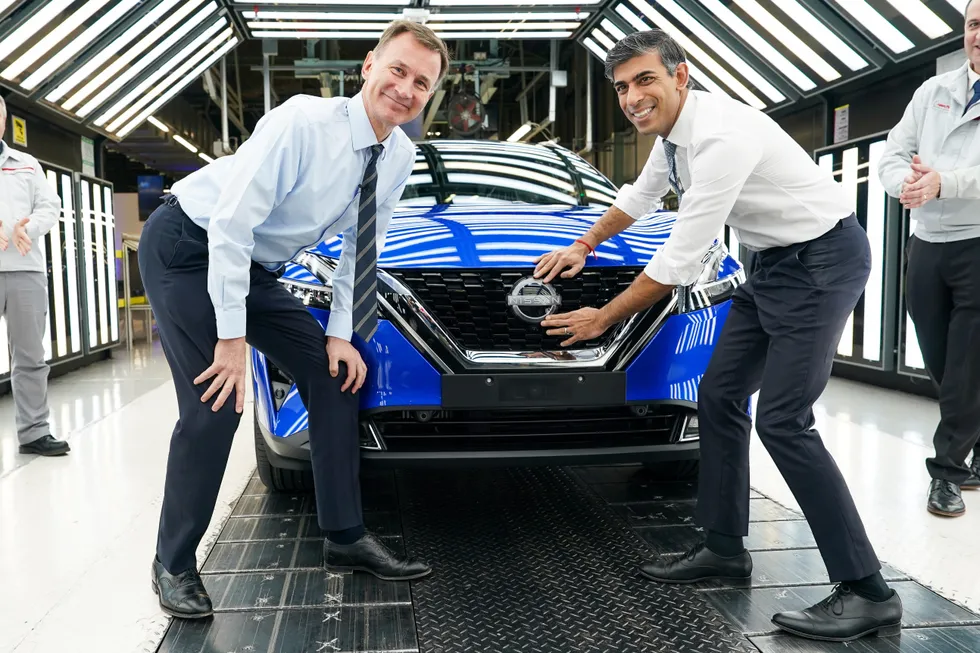Nissan has ceased production of its Leaf electric vehicle in Sunderland, the last mass-market EV made in the UK in recent months.
This ends a thirteen-year span across two generations for the Leaf, which, starting at £28,495, is among the most affordable family-size electric vehicles.
Nissan confirmed that the Leaf has “completed its lifecycle in Europe” but reaffirmed its commitment to producing electric vehicles in the UK.
As part of a £2 billion investment in EV manufacturing at the North East plant, Nissan will now focus on preparing for the Leaf’s electric successor, slated for 2026.
Despite ending production this week, Nissan reports the vehicle remains on sale with any remaining stock.
A brand spokesperson said, “The Leaf has long inspired a loyal following; thus, strong supply and current consumer offers ensure it remains an affordable option for those switching to an electric car.”
Since its launch in Japan in 2010, the Leaf, a battery-powered hatchback, has sold over 650,000 units globally, including 270,000 made at the Sunderland plant for the European market since 2013.
A Nissan spokesperson added, “The Nissan Leaf, the first mass-market EV globally, is nearing its life cycle end in Europe after thirteen years of success.”
The Leaf continues to be sold in the UK in 2024, with dealerships offering ample stock and attractive deals, making it an affordable option for customers transitioning to electric.
EV Landscape Shifts Amid Production Changes
The halt in Leaf production follows Mini stopping the Electric Hatchback production at its Oxford plant, with new Mini E and electric Countryman production moving to China and Germany. However, BMW plans to convert its Cowley factory into an EV site by 2030.
With both Rolls-Royce’s electric Spectre and LEVC’s passenger EVs produced in Ansty in low volumes, the Leaf was the last mass-produced EV in the UK before the next wave of EVs by the decade’s end, including three new Nissan models.
The Nissan spokesperson further stated, “As part of our electrification commitment, Nissan has announced a new lineup of 100% electric vehicles for Europe, to be manufactured at our Sunderland plant.”
The end of Leaf production follows Aston Martin delaying its first electric model until 2026 and Apple cancelling its EV plans.
Despite this, the decline in EV demand in the UK and postponed new petrol and diesel vehicle sales ban to 2035 have slowed the transition to electric.
January saw a 25.1% drop in EV registrations compared to 2023, but the Zero Emission Vehicle (ZEV) mandate requires automakers to sell a larger proportion of EVs from 2024 to avoid fines.
Twenty of the forty-four well-known automakers in the UK have pledged to sell only electric vehicles by 2030 or earlier.
The Tesla Model Y, the fifth most popular new car in Britain in 2023, with nearly 36,000 registrations, became the world’s top-selling new car, with 1.2 million sales by 2023 and nearly 250,000 units sold in Europe last year.
Therefore, it’s too simplistic to claim the start of electric vehicles’ demise.





